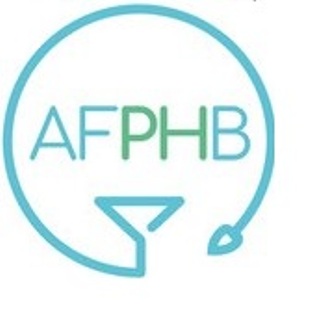USA Warning _ Denosumab : Potential risk of severe hypocalcemia in patients on dialysis
The US Food and Drug Administration (FDA) is investigating the potential risk of severe hypocalcemia with serious outcomes, including hospitalization and death, in patients with advanced kidney disease on dialysis treated with denosumab (Prolia®). The US FDA is alerting health-care professionals and patients of these potentially serious risks as the investigation is going on. Denosumab is indicated for the treatment of osteoporosis in postmenopausal women and men at high risk for bone fracture. There is a warning in the product information of the increased risk of hypocalcemia in patients with severe renal impairment or receiving dialysis. The US FDA’s review of interim results from an ongoing safety study of denosumab suggests an increased risk of hypocalcemia in patients with advanced kidney disease. Preliminary results from a separate internal study by the US FDA further investigating hypocalcemia in dialysis patients treated with denosumab show a substantial risk with serious outcomes, including hospitalization and death. Health-care professionals should consider the risks of hypocalcemia with the use of denosumab in patients on dialysis. When denosumab is used in these patients, adequate calcium and vitamin D supplementation and more frequent blood calcium monitoring, may help decrease the likelihood or severity of these risks. Patients on dialysis should be advised to seek help immediately, if they experience symptoms of hypocalcemia.
Reference: FDA News Release, US FDA, 22 November 2022 (link to the source within www.fda.gov)
WHO Pharmaceuticals Newsletter No. 1, 2023
_________________________________
Japan Warning _ Imatinib : Risk of thrombotic microangiopathy
The MHLW and PMDA have announced that the product information for imatinib should be revised to include the risk of thrombotic microangiopathy. Imatinib is indicated for the treatment of chronic myeloid leukaemia and other cancers. The MHLW and PMDA reviewed international and national reports of thrombotic microangiopathy, and a causal relationship between the drug and event was reasonably possible. The MHLW and PMDA concluded that thrombotic microangiopathy should be added as a clinically significant adverse reaction. Health-care professionals are advised to suspend treatment with imatinib when anemia with fragmented red blood cells, thrombocytopenia, or renal dysfunction are observed.
Reference: Revision of Precautions, MHLW/PMDA, 16 November 2022 (link to the source within www.pmda.go.jp/english/)
WHO Pharmaceuticals Newsletter No. 1, 2023
__________________________
Republic of Korea Warning _ Atezolizumab : Risk of acute kidney injury (AKI)
The Ministry of Food and Drug Safety (MFDS) has updated the product information for atezolizumab to include the risk of acute kidney injury (AKI) as an adverse reaction. Atezolizumab is a monoclonal antibody inhibiting PD-L1 and is indicated for the treatment of locally advanced or metastatic urothelial carcinoma, metastatic non-small cell lung cancer and other types of cancer. The Korea Institute of Drug safety and Risk Management (KIDS) reviewed reports with serious outcomes. There was one fatal report of AKI in a patient who was administered atezolizumab-containing chemotherapy for extensive-stage small cell lung cancer. A causal association could not be excluded between atezolizumab and AKI in this case. Based on the result of this review and information from the regulatory authorities in the US and Japan, the MFDS updated the product information to include the risk of AKI. Health-care professionals should be reminded of the possible risk of renal toxicities with the use of atezolizumab – containing chemotherapy regimens and are advised to monitor for any signs of serious renal symptoms while using this drug.
Reference: Based on the communication from KIDS and Drug Safety Update, MFDS/KIDS, 8 November 2022 (link to the source within nedrug.mfds.go.kr/index)
WHO Pharmaceuticals Newsletter No. 1, 2023
_______________________________
New Zealand Warning : Non-steroidal anti-inflammatory drugs (NSAIDs) Risks of maternal, fetal and neonatal adverse effects in pregnancy
The Medsafe has announced that the product information for non-steroidal anti-inflammatory drugs (NSAIDs) are to be updated and aligned regarding the risks of maternal, fetal and neonatal adverse effects for the use in pregnancy. The Medicines Adverse Reactions Committee (MARC) reviewed the safety of NSAID use in pregnancy. NSAIDs used in early pregnancy is associated with an increased risk of miscarriage and congenital malformation;
NSAIDs used in the second or third trimester may cause fetal renal dysfunction leading to oligohydramnios and, in some cases, neonatal renal impairment; and NSAIDs used in the third trimester may cause premature closure of the fetal ductus arteriosus, fetal renal impairment, inhibition of platelet aggregation, and may delay labour and birth. Health-care professionals are advised that NSAIDs are contraindicated in the third trimester of pregnancy; NSAIDs should not be used during the first two trimesters of pregnancy unless the expected benefits to the mother outweigh the risks to the fetus. If there is a compelling need for NSAID treatment during the first or second trimester, use should be limited to the lowest effective dose and shortest duration possible. Health-care professionals should enquire about NSAID use in women who are pregnant or planning pregnancy and advise them not to self-medicate with these medicines during pregnancy.
Reference: Prescriber Update, Medsafe, 1 September 2022 (link to the source within www.medsafe.govt.nz/)
WHO Pharmaceuticals Newsletter No. 4, 2022

















